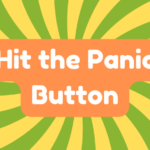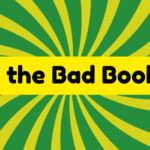The phrase "hit the books" means to study hard, often before exams. Its origins stretch back to the mid-1900s, reflecting a cultural shift towards valuing educational dedication. Commonly used in sentences like, "I need to hit the books tonight," it highlights the significance of focused academic effort. Despite the rise of technology, the necessity for effective study habits remains essential for success. Understanding its importance can guide learners in improving their study routines and achieving better results.
Synonyms
When considering the phrase "hit the books," it becomes evident that its meaning can be conveyed through several synonyms. Recognizing these alternatives not only enriches vocabulary but also emphasizes the necessity of academic focus.
- To study very hard
- To start studying
- To get engaged in reading books
- To prepare seriously for exams
Each synonym underscores a commitment to diligence in learning. While "hit the books" implies an action, these alternatives highlight the varying degrees of effort required. Ultimately, successfully maneuvering academic challenges often demands that students study hard, fostering a culture of familiarity with these potent phrases.
Example of Sentences
Studying diligently often involves immersing oneself in textbooks, a practice commonly referred to as "hitting the books." Many students, particularly as exams approach, tend to realize the necessity of this commitment. Effective study habits are vital for successful exam preparation, as demonstrated in various scenarios:
- "I have an exam tomorrow; I need to hit the books tonight."
- "The exams are only a month away; if you don't hit the books now, you'll surely fail."
- "It's time to turn off the computer and hit the books."
- "I've had enough of time wasting; I'm going to hit the books from today."
Origin
The origin of the phrase "hit the books" remains somewhat elusive, raising questions about its etymology. Etymology exploration reveals that its historical usage dates back to the mid-1900s, indicating a likely connection to a broader trend in academic language. While the phrase segment aligns with other "hit the" idioms, its precise roots are not well-documented, leaving room for speculation. This uncertainty invites skepticism about its true inception while reflecting a cultural shift toward valuing hard work in education. Consequently, "hit the books" embodies a dedication to learning, despite the ambiguity surrounding its linguistic journey.
Collocations
Collocations associated with the phrase "hit the books" provide insight into its practical usage within educational contexts. Recognizing these common pairings can enhance both study techniques and academic motivation. Consider the following relevant examples:
- "hit the books" late at night
- "hit the books" before exams
- "hit the books" and focus
- "hit the books" for improvement
While the phrase suggests intense preparation, one must approach it realistically. Counting on last-minute cramming rarely guarantees success. Engaging consistently with effective study techniques is vital for genuine understanding, rendering the phrase a call to action rather than a mere symbolic gesture.
How to Use in Everyday Language
In everyday conversations, incorporating the phrase "hit the books" can add a relatable and motivational touch to discussions about study habits. Friends can inspire each other by expressing the necessity to apply effective study techniques during exam preparation. This not only reinforces academic motivation but also normalizes the effort involved in hard work.
| Context | Example Sentence |
|---|---|
| Exam Preparation | "It's time to hit the books!" |
| Group Study | "Let's hit the books together." |
| Time Management | "No more distractions; hit the books!" |
| Before a Deadline | "If I don't hit the books now, I'll be stressed." |
| New Subjects | "I need to hit the books on this topic." |
Why Is It Still Relevant Today?
Studying hard remains a crucial element of academic success even in today's fast-paced world. With ever-evolving studying trends, students often face increasing educational pressures that require effective time management and focused learning. The rise of technology and distractions makes dedicated study time essential, as superficial engagement with material is insufficient. A robust study routine allows students to absorb information deeply, fostering critical thinking and innovation. As the demand for high achievement grows, the phrase "hit the books" underscores the necessity of commitment, encouraging learners to prioritize knowledge and cultivate skills that are relevant in a competitive landscape.







